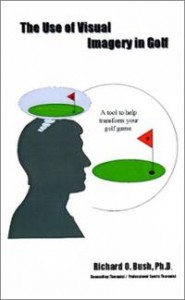I experienced the visual imagery on Monday night. I attended a gala in San Francisco and parked my car in a public parking garage on the purple level. After several hours at the event, my boyfriend and I returned to the garage to get my car and we realized shortly thereafter we were walking in the wrong direction. I had a mental image in my mind, almost like a photograph, of where my car was, which cars it was parked next to, the column on the left side, the restaurants we passed to get to the event etc. We walked across the block to the correct parking garage at finally got to the car. I created a strong mental image of my car and the environment around me to remember with a location that I knew helped create retrieval cues that allowed access to the items in my mind (PSU World Campus, Lesson 13).
Visual imagery is the ability to “recreate the sensory world in absence of visual stimuli” (Goldstein, 2011). A more simple way to explain visual imagery is information passing through the brain as though something is being perceived, when nothing is happening. It is almost as though visual imagery is the imagination because we can visualize a very real scene in our minds. People have the ability to imagine environments, smells and stimuli, which his a mental image (Goldstein, 2011).
Visual imagery is used in therapy quite frequently as a tool for those learning to manage their stress or relax (Goldstein, 2011). People may be led through a mental vacation through visualizations as a part of therapy when they are dealing with issues. Psychologist’s can also use visual imagery as an assessment to see how well a patient is functioning, and doctors can use brain scans and visual imagery to assess damage or injury (Goldstein, 2011). Guided visual imagery is frequently also used in meditation for many religious traditions.
On another note, I recently read an article, “How Artistic Brains Dier,” which discusses the differences between brains of artists and non-artists. The brains of the artists have more developed structures in the parietal lobe, allowing them to manipulate visual imagery more easily. Here is the article:
http://www.the-scientist.com/?articles.view/articleNo/39749/title/How-Artistic-Brains-Differ/
References:
Goldstein, B. (2011). Cognitive Psychology: Connecting Mind, Research and Everyday Experience, 3rd Edition. Wadsworth, Inc.
Pennsylvania State University World Campus (2014). PSYCH 256 Lesson 12: Introduction to Cognitive Psychology. Retrieved from https://courses.worldcampus.psu.edu/sp14/psych256/002/content/13_lesson/09_page.html

